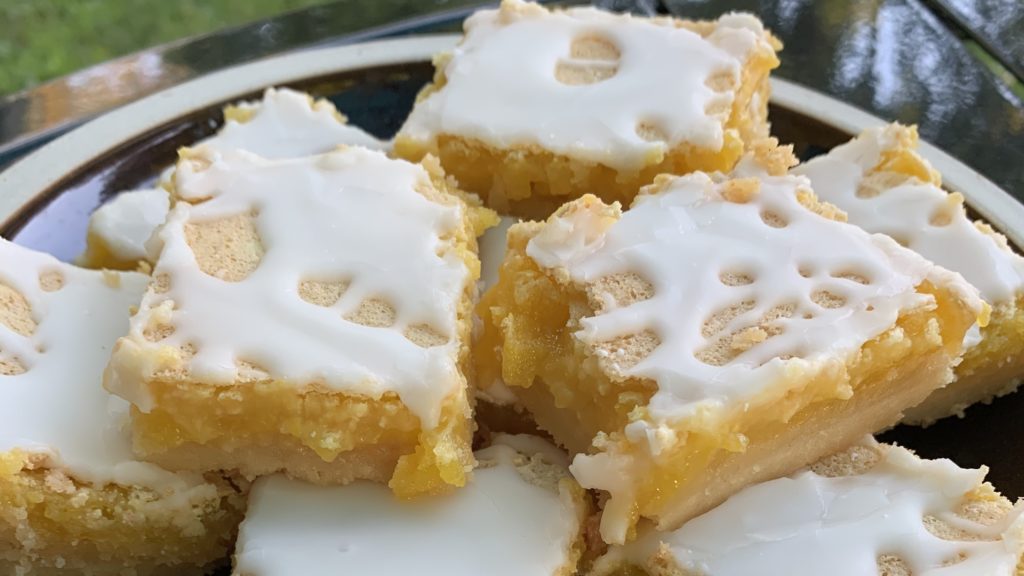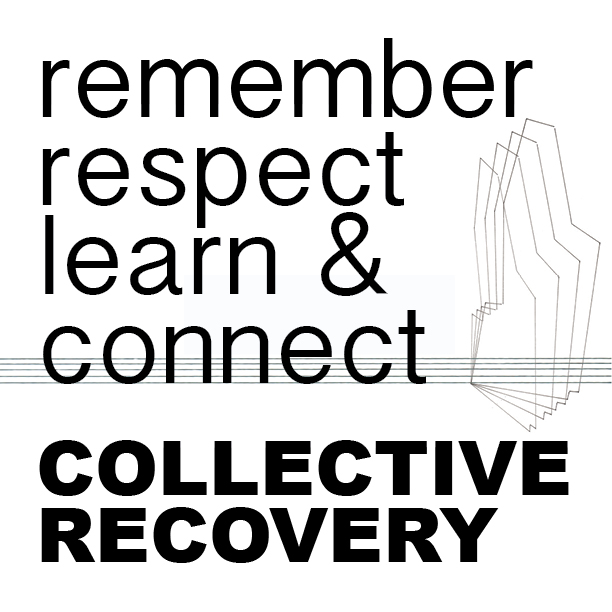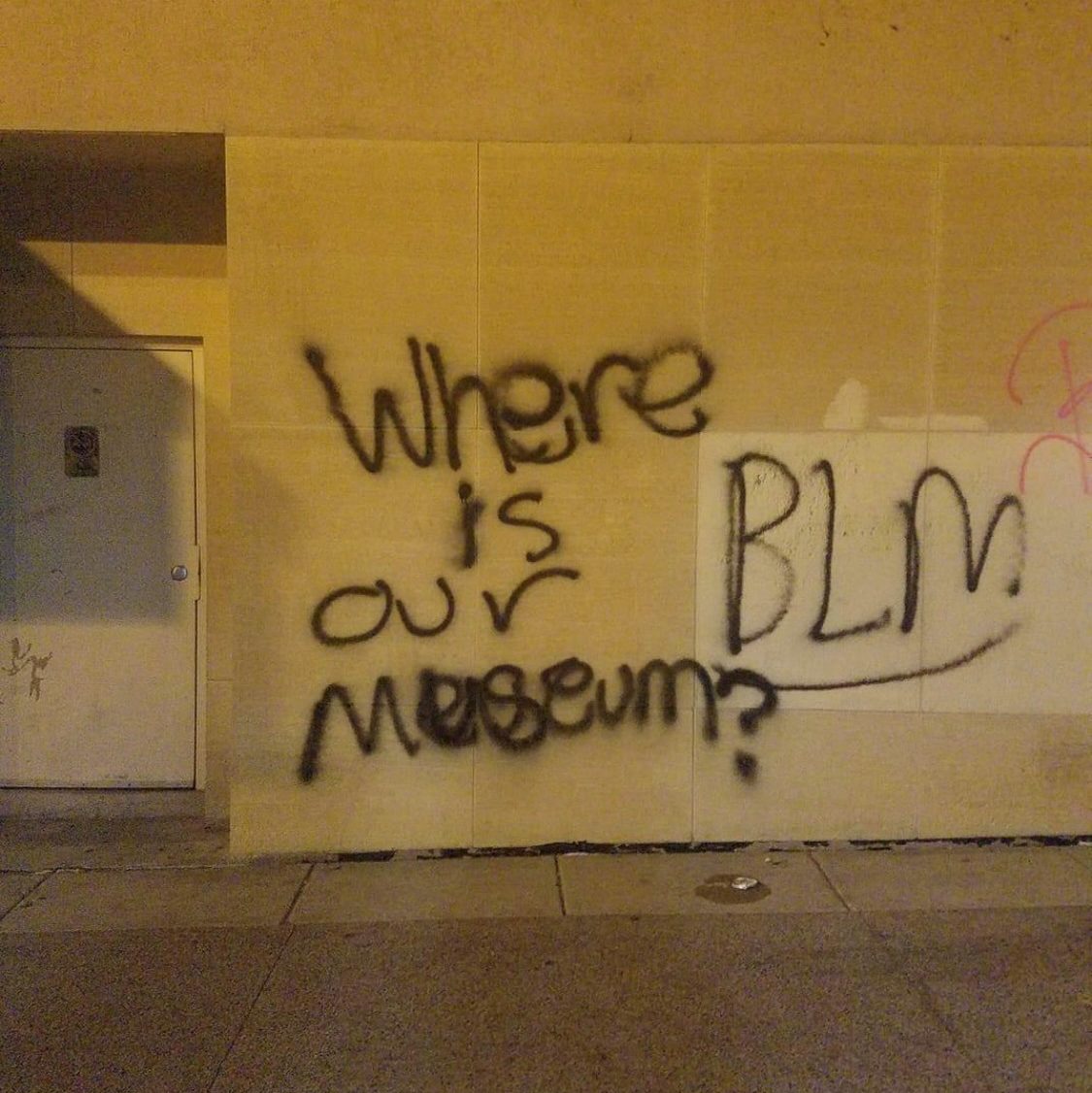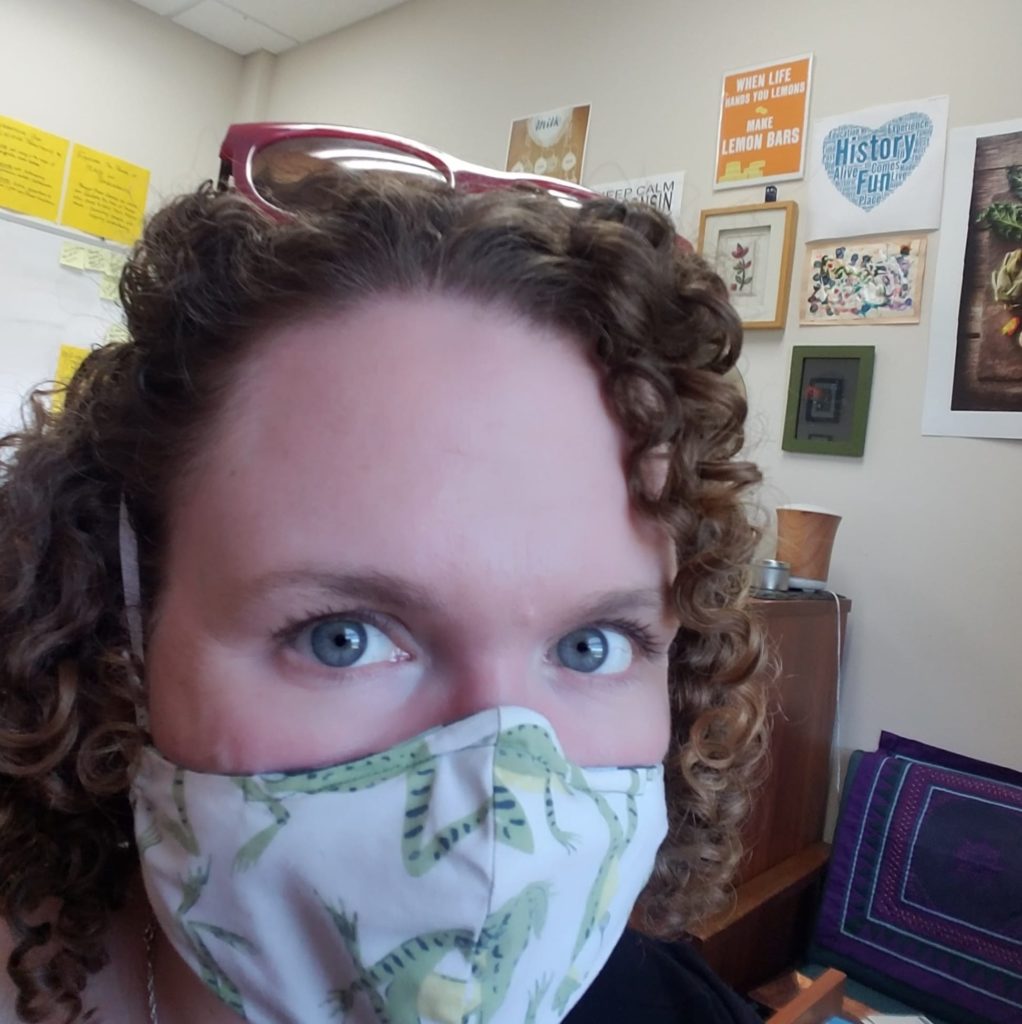A guest post from AMM member Anna Altschwager, Assistant Director at Old World Wisconsin, a 600 acre living museum with the Wisconsin Historical Society. Drawing on a background in Material Culture, Project Management, and Experience Design, she is passionate about the role of storytelling to nurture understanding and critical thinking. She on AMMs EdCom Steering Committee. And yes, she made those Lemon Bars. Email Anna or find her online as @Museumquirk.

At the time of writing this, the twitter and facebook link du jour was data showing that 1/3 of museums will not survive the year. Look around. That’s us. Our communities. Our friends.
I find myself sitting in countless Zoom meetings where we slog through plans we never thought we’d have to make, trying to find balance while the sand shifts endlessly under our feet. Pandemics, Equity, Human Rights, Climate Justice, Job Cuts, Funding Cuts, Program Cuts, Masks, Protests, Closures.
In these conversations we often hear about making “Lemonade out of Lemons!” There have been many lemons… So much work, and so many lemons.

This summer, at the Association of Midwest Museums’ annual business meeting we hosted Mindy Fullilove, who spoke about Collective Recovery. In the talk, which you can watch online, she explored the inherent contradictions in our lives and museum practice, and what it means to “handle the truth.” I appreciated how Mindy spoke about recognizing that when something breaks, all of the broken pieces – the shards– can each be hurt and angry. The positioning of these shards can lead to a fractured society, full of this cacophony of hurt and anger.
(Image: Association of Midwest Museums Annual Business Meeting slide, from a presentation by Mindy Fullilove, public historian and social psychiatrist)
Collective recovery, the work of fixing the whole, can only be possible when we act as part of something. We are a network of organizations. A “net,” made of strong threads that intersect and make the whole stronger. As individual organizations it might not be our job to fix all of the issues, or be everything to every community. Our role may not be to take to the streets. Our role may not be to break every barrier. We are only a piece of this. What if we told ourselves that “everything we need we already have?” We have our networks, we have our creativity, and we have our truths to be told. What if (to quote that other, better known Anna from Frozen 2) we just focused on doing “the next right thing?”

(Image: The exterior the Wisconsin Veterans’ Museum, Madison, Wisconsin, June 4, 2020, after a night of protests. Photo Credit: Kurt Griesemer)
In my office I’ve got a print that says “When Life Hands You Lemons, Make Lemon Bars.” Given to me by a friend, it’s a reminder that if nothing else I’m a Midwesterner who finds hope in the mess.
So are lemon bars misguided positivity? I don’t think so. They aren’t about ignoring the bad and only seeing good. To play out the analogy: You see you have lemons. You choose to make them into dessert. You share them with people. Everything we need, we already have. Lemon bars are resilience.

A few weeks ago, my “Lemon Bar” might have been to remind myself to “Show up. Do the work. Help people.” But after reflecting on the idea of collective recovery, it feels more like “Be present. Focus on my truths. Support people in theirs.” I’ve been asking folks for their Lemon Bars. Asking them to fill a metaphorical plate with their bright spots, lessons learned, and inspirations. We’re all in this mess. Sometimes, we just need those few right words to help remind us of our network (our net of work?), and our collective recovery.
For your consideration, here is a collection of Midwestern Lemon Bars we’d like to bring to the table. Keep the plate, we’ll pick it up next time. Drive safe. Watch for deer.
(We’re a really hospitable people, so there are a few non-Midwesterners included in the mix. There’s always an extra seat at a potluck.)
“I took a Post-Crisis Leadership certificate course through USF Muma and have shifted my mindset to seeing obstacles as opportunities. That has been huge in empowering myself and my team to create a new future and vision for our work.”
-Carla Thacker Deputy Director, Guest Experiences at Museum of Science and Industry, Chicago
“[We] just moved to Appleton and were recently trained (via zoom of course) how to be a volunteer through Fox Valley Relief. We are becoming “friendship family” and are paired with a family that has recently moved to Wisconsin from the DRC in Africa. This particular family has been in refugee camps for years. They need assistance in learning some of the systems here and to help communicate with the schools. We are really looking forward to meeting our family.
-Lisa Groz, Educator, Wisconsin
“The National Cowboy & Western Heritage Museum. Tim, head of their security, took over their Twitter when the staff went remote and it’s the greatest thing I have ever seen. I’m obsessed. He makes me smile every day.”
-Emily Lange, Former Museum Professional, current Communications and Marketing Manager, New York State Economic Development Council.
“After starting [my new job] in November, I’ve officially been working from home longer than I was ever onsite. Still feeling like a baby learning how to walk in the new role, I’ve borrowed my mantra from Disney and the most overplayed album of the year: “The Next Right Thing” from Frozen 2. The COVID mountain feels steep and scary when preparing for large capital projects in galleries I’m unable to access with dwindling project teams and slashed budgets. To make the uphill climb a little less overwhelming, I’m now just concentrating on putting one foot in front of the other, focusing on the things I can do rather than everything I can’t, chomping away bit by bit. It’s helped make my days feel more focused and less like I’m swimming upstream.”
-Lindsay, Exhibition Project Manager, Chicago
“There’s been a lot of work to maintain audiences (shift to virtual programming, etc) but most importantly [I think] are the efforts we put in to maintain the cohesiveness of our teams—from the simple but significant increase of individual “check-ins” to the concentrated efforts to successfully secure PPP and NEH CARES funding that have enabled continual employment of many staff members.”
-Mark Sundlov, Director of Soldiers Memorial Museum, St. Louis, MO.
“While I am often sad, tired, and stressed, I am excited to be able to re-build our organization to be better, more inclusive, and more financially sustainable. I don’t think we’ll ever go back to what was “normal” before, but we have the opportunity to create new norms that will make us better. I’ve re-prioritized what is emotionally most important to me, and its people. And I think it will guide my work and life moving forward.”
-Megan Wood, Ohio History Connection, Columbus OH
“We know this is an important moment, one we’ve devoted our lives to (and who’s kidding, this is much more than a job to a lot of us!). [It’s] scary and exciting and exhilarating all at the same time. There are moments I feel nearly defeated, and yet amidst this chaos, I’ve also felt moments of genuine joy and a sense of being present. […] for now I’m trying to give myself a little grace.”
-Bob Beatty, Ph.D., The Lyndhurst Group
“While The Field was closed it enabled my wife to get back to work a couple of days a week […] while I stayed home and got to watch my 13 month old son start to walk and climb and put puzzles together. When I was allowed to go back to work, I managed to reorganize to a four-day work week, so I could continue to have dad time…”
-Ryan Bruxvoort, Traveling Exhibits Manager of Operations, The Field Museum, Chicago IL
“Shifting our museum model (temporarily) from one where we are open to the public year round allowed us time and mental space to work on long postponed projects which luckily dovetailed well into providing virtual content. We took the time while working from home to start the blog we had been talking about for 10 years. Also really enhanced the podcast we’d just started before quarantine. We think both of these content streams are now solidly established in a sustainable enough manner to allow us to continue them (albeit at a slower pace) while we also return to welcoming the public in person.”Emily Holmes, Director of Education, The Paul Revere House , Boston MA
